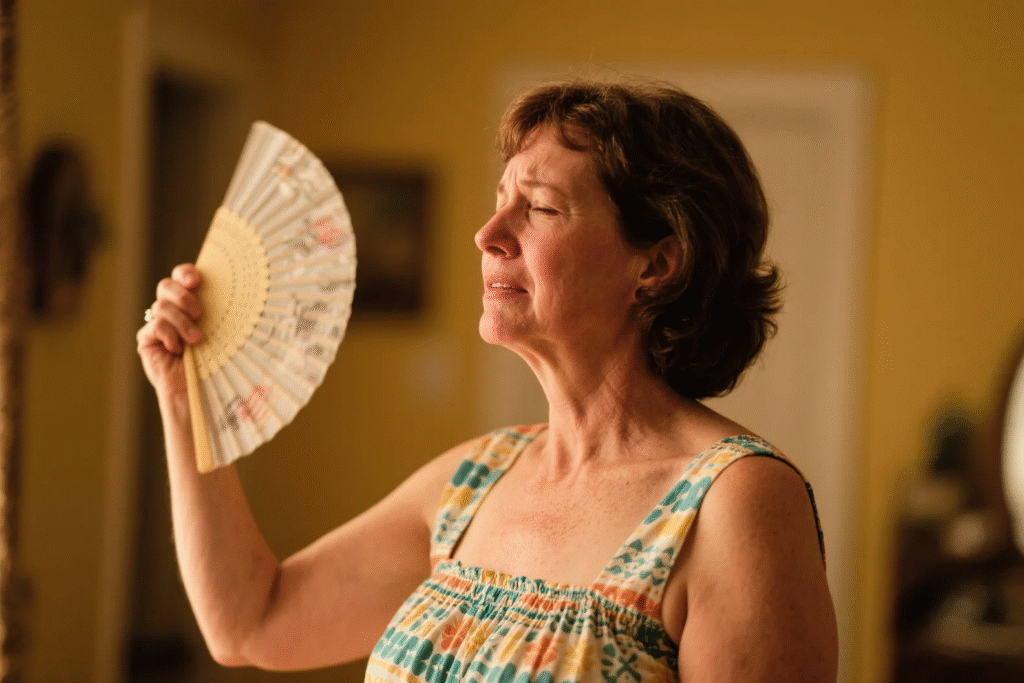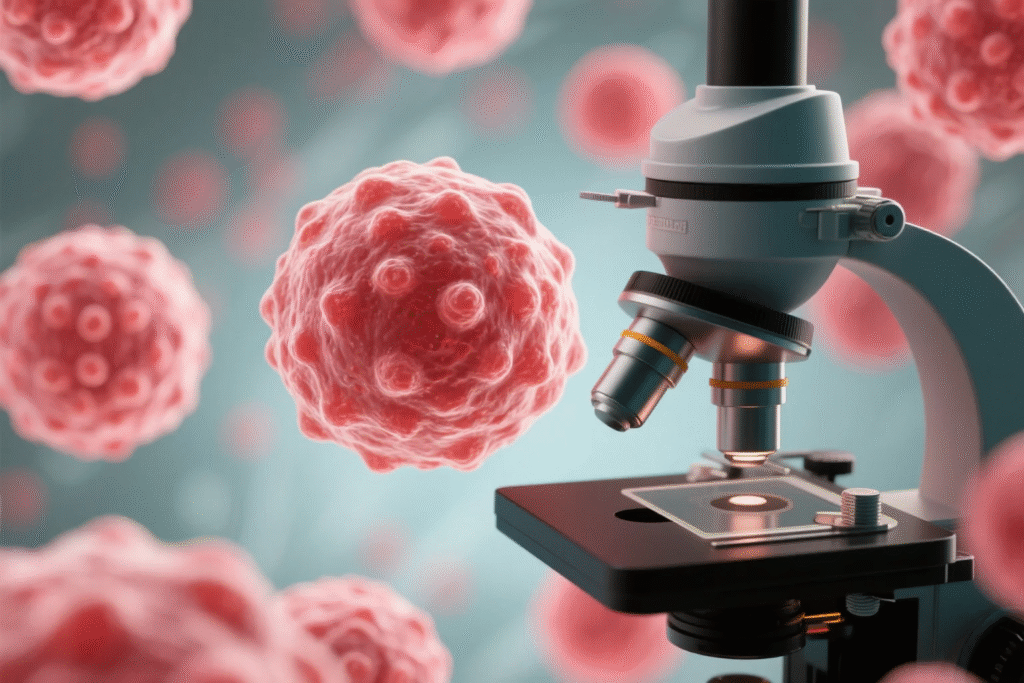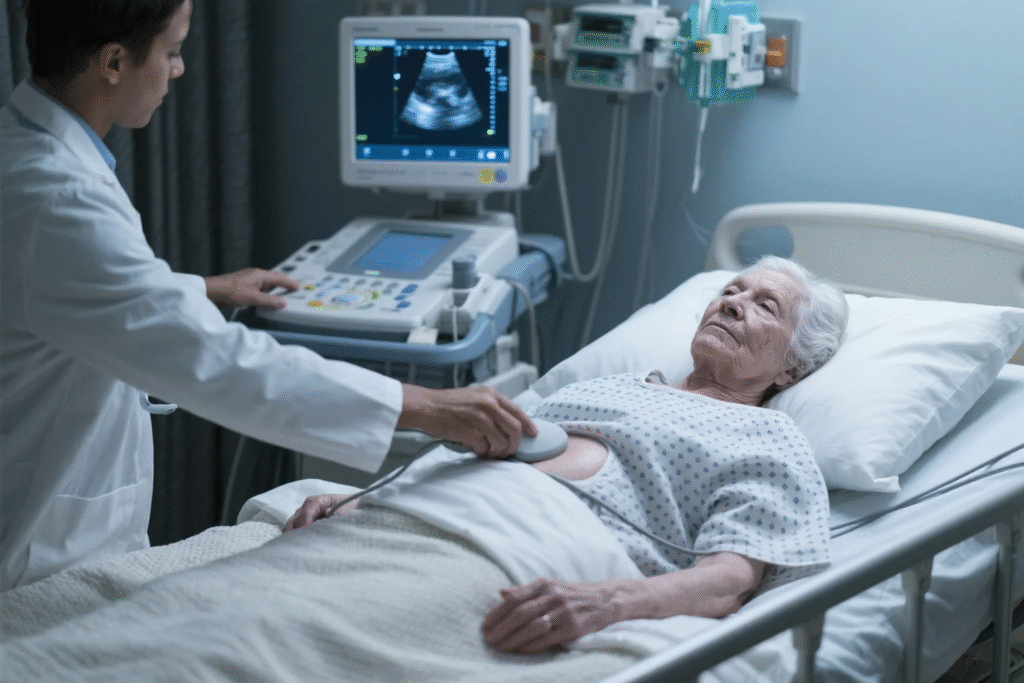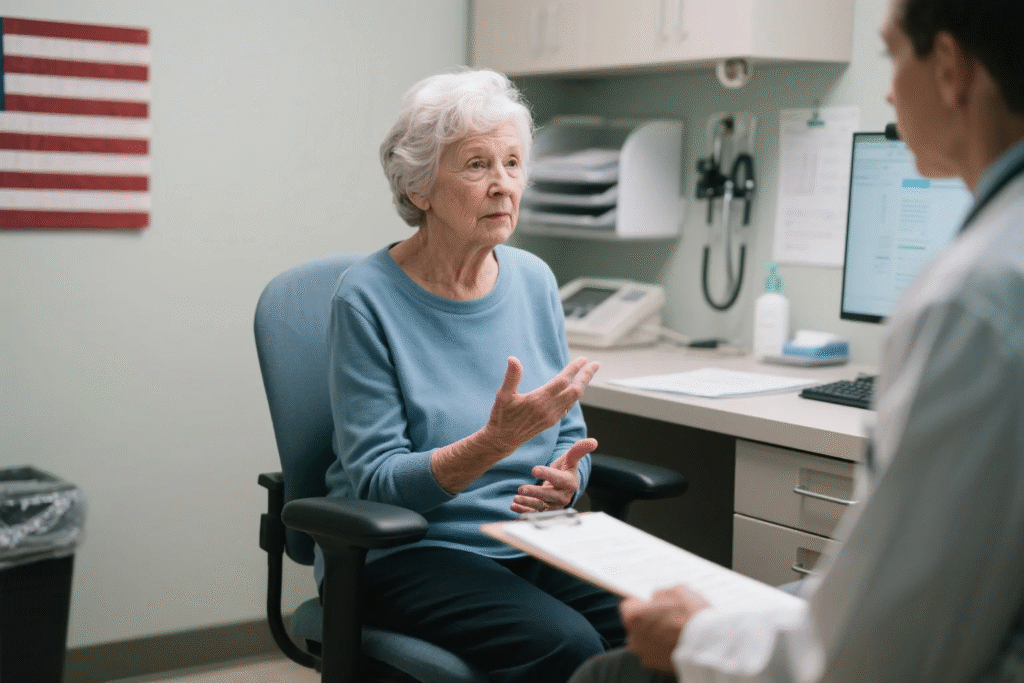Menopause is a natural biological process that marks the end of a woman’s reproductive years. Typically, the average age of menopause in the United States is around 51, but the normal range can span from 45 to 55 years old. However, if you’re a woman and you find yourself well past the age of 55 without experiencing menopause, it’s crucial to take this seriously. In this blog, we’ll explore why late menopause matters, the potential health risks associated with it, and what you can do to ensure your well – being.
Table of Contents

Understanding Menopause
Menopause occurs when the ovaries stop producing as much estrogen and progesterone, the hormones that regulate the menstrual cycle. This decline in hormone production leads to the cessation of menstruation. Perimenopause, the transitional phase before menopause, can last for several years. During this time, women may experience a variety of symptoms, including hot flashes, night sweats, mood swings, irregular periods, and vaginal dryness. These symptoms can vary in intensity from woman to woman.
The exact cause of the onset of menopause is a complex interplay of genetic, environmental, and lifestyle factors. Family history plays a significant role; if your mother or grandmother experienced menopause at a later age, you may be more likely to as well. Additionally, factors such as smoking, excessive alcohol consumption, and certain medical conditions can also influence the timing of menopause.

Late Menopause: What Counts as “Late”?
While the normal age range for menopause is between 45 and 55, menopause that occurs after the age of 55 is considered late. According to recent studies, approximately 5 – 7% of women in the United States experience menopause after 55. This might seem like a small percentage, but it still means that a significant number of women are at risk of potential health issues related to late menopause.
One of the primary concerns with late menopause is the increased exposure to estrogen over an extended period. Estrogen is a powerful hormone that, while beneficial in many ways, can also have negative effects when levels remain high for too long. High estrogen levels over an extended period can increase the risk of developing estrogen – dependent cancers, such as breast and endometrial cancer.
Research has shown that women who experience late menopause have a slightly elevated risk of breast cancer. A study published in the Journal of the National Cancer Institute found that each year of delayed menopause increases the risk of breast cancer by about 3 – 4%. This is thought to be due to the continuous stimulation of breast cells by estrogen, which can lead to the development of abnormal cells over time.
Similarly, the risk of endometrial cancer is also higher in women with late menopause. The endometrium, the lining of the uterus, thickens in response to estrogen. When a woman doesn’t experience menopause at the expected time, the endometrium is constantly exposed to estrogen without the regular shedding that occurs during menstruation. This can lead to abnormal growths in the endometrium, increasing the risk of cancer.

Other Health Risks Associated with Late Menopause
In addition to an increased risk of cancer, late menopause is also associated with other health problems. Cardiovascular disease is one such concern. Estrogen has a protective effect on the heart and blood vessels, but this protection can come at a cost when estrogen exposure is prolonged.
Women with late menopause may have a higher risk of developing high blood pressure, high cholesterol, and diabetes, all of which are risk factors for heart disease. The continuous presence of estrogen can disrupt the body’s normal lipid metabolism, leading to elevated levels of LDL cholesterol (the “bad” cholesterol) and decreased levels of HDL cholesterol (the “good” cholesterol).
Another potential issue is osteoporosis. While estrogen helps maintain bone density, the prolonged hormonal state in late – menopausal women can lead to an imbalance in bone remodeling. When menopause is delayed, the body may not start the process of bone loss prevention as early as it should. This can result in weaker bones and an increased risk of fractures later in life.

Why Does Late Menopause Happen?
There are several reasons why a woman might experience late menopause. As mentioned earlier, genetics can play a major role. Some women simply inherit a genetic predisposition to have a longer reproductive lifespan.
Certain medical conditions can also contribute to late menopause. Polycystic ovary syndrome (PCOS), for example, can disrupt the normal hormonal balance in the body and delay the onset of menopause. Women with PCOS often have irregular periods and elevated levels of androgens, which can interact with estrogen production and delay the natural decline in ovarian function.
Lifestyle factors can also have an impact. Women who maintain a healthy lifestyle, including regular exercise, a balanced diet, and minimal stress, may experience a later menopause. However, it’s important to note that while a healthy lifestyle can influence the timing of menopause, it doesn’t necessarily mean that late menopause due to lifestyle factors is without risks.

What Should You Do If You’re Experiencing Late Menopause?
If you’re over 55 and haven’t yet entered menopause, the first step is to schedule an appointment with your healthcare provider. A thorough medical examination is essential. Your doctor will likely perform a physical exam, including a pelvic exam, breast exam, and may order blood tests to check your hormone levels, cholesterol, blood sugar, and other important markers.
Based on the results of these tests, your doctor may recommend additional screenings. For example, if your risk of breast cancer is elevated due to late menopause, your doctor may suggest more frequent mammograms or other imaging tests such as breast MRI. Similarly, for endometrial cancer screening, a pelvic ultrasound or endometrial biopsy may be recommended.
Your healthcare provider can also discuss lifestyle modifications that can help mitigate some of the risks associated with late menopause. This may include maintaining a healthy weight, engaging in regular physical activity, eating a diet rich in fruits, vegetables, whole grains, and lean proteins, and limiting your intake of processed foods and alcohol.
In some cases, hormone replacement therapy (HRT) may be considered. However, this decision should be made carefully, in consultation with your doctor, as HRT also comes with its own set of risks, especially in women with a higher risk of breast or endometrial cancer.

Conclusion
Menopause is a natural part of a woman’s life, but when it occurs significantly later than the average age, it’s important to be aware of the potential health implications. If you’re a woman over 55 and haven’t yet hit menopause, don’t ignore it. Pay attention to your body, schedule regular check – ups with your doctor, and take proactive steps to protect your health. By understanding the risks and taking appropriate measures, you can navigate this unique stage of life with confidence and ensure a healthy future.
Remember, every woman’s experience with menopause is different, and there is no one – size – fits – all approach. But by staying informed and working closely with your healthcare team, you can make the best decisions for your well – being. If you have any concerns or questions about late menopause, don’t hesitate to reach out to your doctor. Your health is too important to leave to chance.




